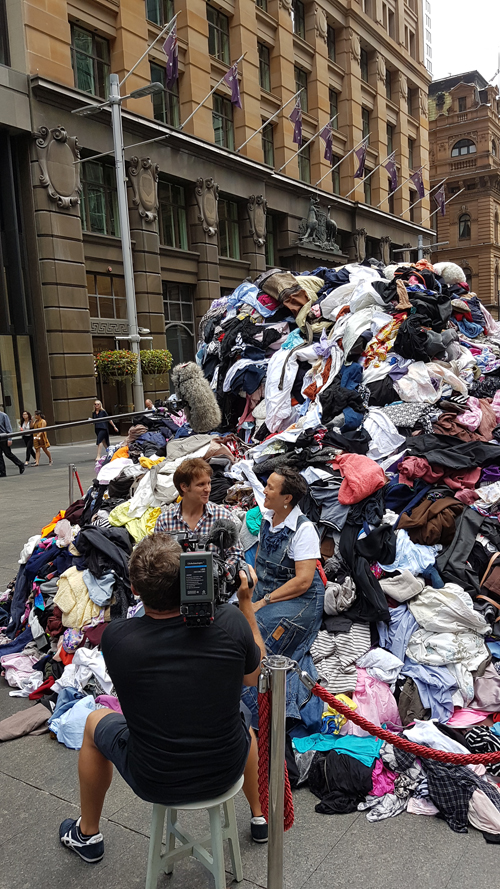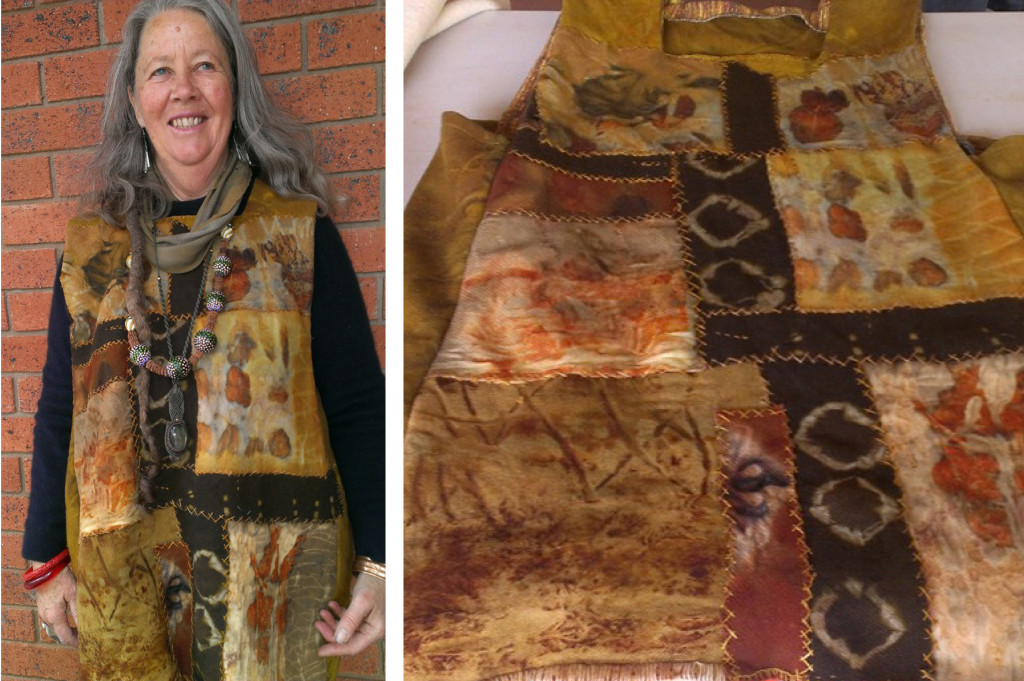Making is important for wellbeing and mending brings joy and meditative calming. These are the messages from people I’ve met while travelling to Auckland, New Zealand, as part of my eight-week Churchill Fellowship research. I’ve been posting regularly on Instagram @textilebeat on the topic of how being hands-on with our clothes can help reduce textile waste and enhance wellbeing. I’ve recorded conversations which are posted on youtube and shared below.
Educator and designer Karishma Kelsey
Amongst her many talents, Karishma Kelsey @karishmadesign teaches the politics of style including her lifelong belief that anything is everything, everything is anything. As part of my Churchill Fellowship meetings, we talked about her @miraculous_me_movt style activism and philosophy: your body is your canvass; creativity is your birthright; the superpowers of colour energies and following your intuition. Karishma believes in the joy and meditative qualities of mending and creating.
Botanical dyer Melissa Pentecost-Spargo Continue Reading →

